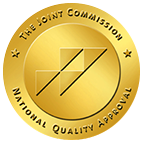
Understanding Pornography Addiction
Anytime a person begins to engage in a behavior compulsively, there may be cause for concern.
This is the case for pornography addiction, and it’s becoming more prevalent. A 2019 study found that the prevalence of pornography addiction is likely around 3 – 6 percent. Another study discovered that 11.8 percent of frequent porn users could be classified as “compulsive.”
However, the recent COVID-19 pandemic caused a significant increase in the amount of pornography consumed online. Some websites had more than 40 percent more traffic at the height of the pandemic than in previous years.
There have not been studies published suggesting a higher rate of porn addiction as a result of the pandemic. Due to the pandemic, people have been more isolated from each other in recent years. Therefore, it is more likely that people may have increased their rates of pronography consumption. It is likely that more people are experiencing porn addiction now than in previous years.
Of course, not everyone who consumes pornography will end up with a pornography addiction. Some people can view porn occasionally or only during times of stress.
However, others find themselves unable to participate in other activities because of their porn addiction. Behaviors may include choosing porn over spending time with loved ones. In some cases, porn addiction can cost a person their relationships, self-esteem, or even their jobs.
What is Pornography Addiction?
Pornography addiction is a type of behavioral or process addiction. Other process addictions include gambling addiction, sex addiction, and internet addiction.
A person who is addicted to porn will repeatedly engage in the behavior of viewing pornography despite any negative consequences. The negative consequences can range from mild to severe. Some people may feel ashamed and frustrated, or may lose the ability to become intimate with a partner in real life.
The repetition of behavior will escalate over time for someone with a pornography addiction. This is similar to what a person with a substance use disorder experiences.
So, a person may start by only viewing pornography on occasion. They may then progress to watching it more and more frequently. Eventually, those addicted may lose control over where and when they view pornography. In some cases, people will consume pornography regardless of where they are or what risks are associated with their viewing.
Pornography addiction has not yet been recognized as an official behavioral health disorder by the World Health Organization. However, there is clear evidence that people who find themselves watching pornography instead of participating in other activities exhibit addictive behaviors.
One study from 2017 examining Problematic Pornography Use (PPU) found similar brain responses of people with a pornography addiction that were similar to those addicted to drugs. Research suggests that pornography addiction is as serious as other addictions. As such, it should be treated with the same type of care and consideration.
Causes of Pornography Addiction
Being exposed to pornography is the first thing that leads to pornography addiction. Often, people exposed to pornography at a young age become addicted. They might be exposed due to peer influence or from finding pornography while browsing the internet. Adolescents who feel socially isolated may seek out pornography as a form of escape.
Watching pornography can trigger the brain’s reward center in a manner similar to genuine sexual intercourse. Because of this reaction, it can feel good for someone to watch pornography. However, as with other addictive substances, it can take more viewing to get the same amount of pleasure. A person can find themselves constantly seeking that reward by increasing their of viewing pornography multiple times a day.
This can turn into an unhealthy compulsion in which the viewer is never satisfied. Thus, the person keeps viewing pornography to feel that reward. The brain, in a sense, hot-wires the reward center prompting the compulsive behavior.
People who are addicted to pornography may not receive pleasure from a physical connection with another person. Instead, people who are addicted to porn get pleasure from viewing pornography.
Are You Addicted to Pornography?
While Pornography Addiction is not recognized in the Diagnostic and Statistical Manual of Mental Disorders (DSM-5), in 2018 the World Health Organization (WHO) added compulsive sexual behavior to the International Classification of Diseases (ICD-11). According to the WHO, a diagnosis of Compulsive Sexual Behavior could be made if repetitive sexual activities becomes the central focus of a person’s life to the point that they neglect their health and personal care or other interests, activities, and responsibilities.
The following Pornography Addiction Quiz was created to provide insight into whether the compulsion to watch pornography has gotten to the point where it is negatively affecting a person’s life.
This online screening is not a diagnostic tool. Only a trained medical professional, like a doctor or behavioral health professional, can help you determine the best treatment for you.
Pornography Addiction Risk Factors
As with other types of compulsive behaviors, there are several risk factors for pornography addiction. They range from a person’s biology to their social influences and experiences. People who have other addictions may be more likely to become addicted to pornography.
People with certain traits or experiences may be at a greater risk of developing a pornography addiction. Some of these include:
- High libido
- Victim of abuse
- Social isolation
- Influence from peers
- Early exposure to pornography or sexuality
- Behavioral Health issues (e.g., depression, anxiety, impulse control disorder)
- Rejection, especially from desired partner(s)
Signs of a Pornography Addiction
Since viewing pornography is often seen as a socially acceptable activity, it can be challenging to determine if addiction is present. However there is a line crossed when someone is merely enjoying an occasional viewing and progresses into compulsively viewing pornography.
It can also be difficult to diagnose pornography addiction in a loved one if they keep their pornography viewing a secret.
Here are some symptoms of pornography addiction to watch out for:
- A person has less satisfaction with their in-person sex life
- A person is unable to perform sexually (e.g., low libido, lack of ability to get an erection or lubricate)
- A person engages in risky behavior to watch pornography, such as viewing at work, knowing they may get fired
- A person places a priority on pornography over other responsibilities
- A person continues watching porn even though they feel ashamed afterward
- A person spends more money than they can afford on pornography
- A person wants to stop watching porn but feels unable to do so without help
Treatment Options for Pornography Addiction
If you or a loved one has a pornography addiction, there’s good news. Treatment for pornography addiction is available to help people break their relationship with pornography. People seek treatment to enjoy their favorite people and activities once again.
As with other behavioral addictions, pornography addiction can benefit from counseling programs, such as cognitive-behavioral therapy (CBT). This form of treatment can help anyone suffering from porn addiction. CBT is aimed at helping people discover and address underlying emotional issues that might be causing the addiction.
In addition, joining a support group can benefit people with a pornography addiction. A support group can help you share your story with people going through a similar experience. Receiving support from people who understand your struggles is an essential part of recovery. You have the opportunity to learn from each other and find strength in your healing journey.
Get Help For Pornography Addiction
We can help you start your recovery journey today. Contact us to receive more information on our treatment for pornography addiction. There is hope for a future free of addiction.
Related Topics
Clinically Reviewed By:
Deanna J. Crosby, M.A., LMFT, LAADC, Psy.D. (C)
Deanna Crosby is a Licensed Marriage and Family Therapist (LMFT) with over 20 years of experience working with clients in recovery. Her expertise has catapulted her into the spotlight. Featured on several episodes of the Dr. Phil Show as a behavioral health expert, DeAnna is a routine contributor for NBC News, The Huffington Post, Elle Magazine, MSN, Fox News, Yahoo, Glamour, Today, and several other prominent media outlets.
After receiving her bachelor’s degree from the University of California in Irvine, Crosby did postgraduate work at Centaur University where she graduated at the top of her class with a CAADAC certification in Centaur’s chemical dependency program. Following her time at Centaur, Crosby received her Master of Counseling Psychology degree from Pacifica Graduate Institute, where she also attained a Doctoral Degree in Depth Psychology.
TAKE THE FIRST STEP
From all of us at New Method Wellness co-occurring treatment center, we wish you peace and serenity in knowing that you or your loved one will get the necessary help.
ACCREDITED BY:


